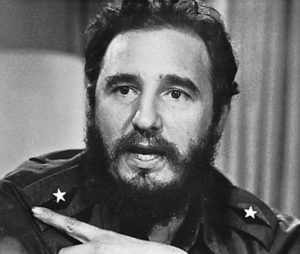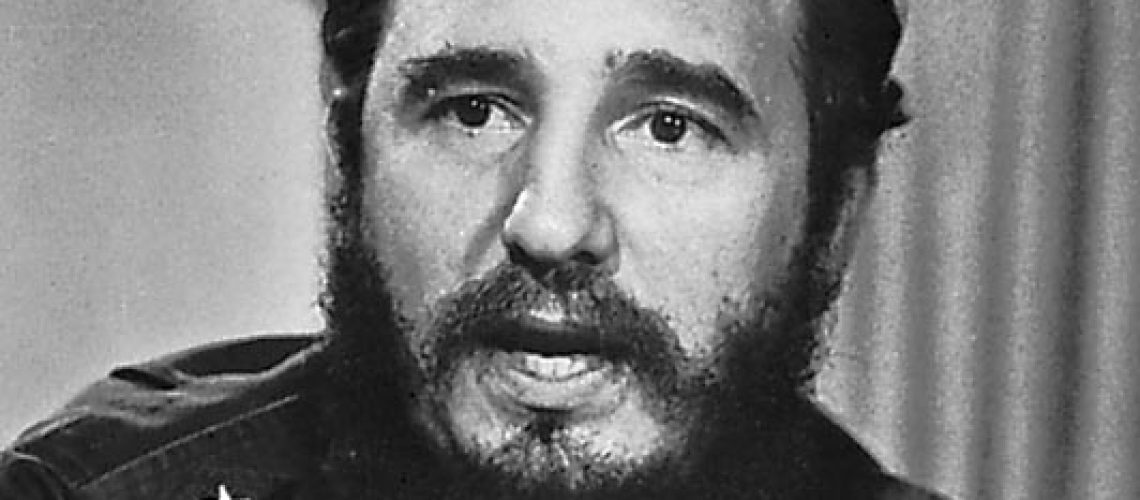Expert assessments this month that President John F. Kennedy’s Cuban and peace policies prompted his murder have led to largely positive reactions from a public seeking clarity on the issues, which remain timely.
Earlier this week, CAPA and the Justice Integrity Project co-published a long column “Deep State Killed JFK For His Cuba Policy, Peace Advocacy” drawn largely from an all-day conference entitled “The National Security State and JFK” organized by the Future of Freedom Foundation on June 3 in Dulles, Virginia.
 The late Cuban revolutionary leader Fidel Castro is shown in a file photo.
The late Cuban revolutionary leader Fidel Castro is shown in a file photo.
The reaction has been mostly positive since then. The Future of Freedom Foundation, a libertarian think tank and publishing house for several well-known authors research JFK assassination books, linked to the column on its daily blog on June 15. Also, the Europe-based human rights web magazine The Indicter and the Asia-based political commentary site The Fifth Estate each republished the column as follows:
The Indicter, edited by Dr. Marcello Ferrara de Noli
The Fifth Estate, edited by Robert Finnegan
“Rogue U.S. officials conspired with their powerful patrons to assassinate President John F. Kennedy in 1963 primarily because of his opposition to a CIA-led U.S. military overthrow of Cuba’s Communist government,” the analysis by investigative reporter and CAPA board member Andrew Kreig began. “That was a dominant — albeit not universal — theme by speakers at “The National Security State and JFK” conference on June 3 in a Northern Virginia community that is heavily populated by intelligence, military and other federal workers and retirees.”
The column also was distributed to CAPA’s members electronically under the organization’s new system. Anyone who did not receive it early Tuesday is asked to contact the CAPA system administration so that the system can be checked.
Amid an overall positive reaction to the column from speakers and others, several people noted typos or other small tweaks that were corrected.
Perhaps the strongest criticism came from a reader who protested that the column contained scant discussion of organized crime relationships by the murdered president’s father and likely involvement in hoodlums in JFK’s death. A productive correspondence has developed, however, once the commentator learned that the author had an extensive background in organized crime coverage and research and was more than willing to explore explore any new information relevant to the column’s focus on ultimate masterminds, not simply triggermen.
The discussion is especially timely this week as President Trump moves to reimpose restrictions on Cuba lifted in 2014, as reported in a New York Times analysis predicting problems. As analyzed Christopher Sabatini in Trump’s Imminent Cuba Problem:
Soon — maybe as early as Friday — President Donald Trump, with Senator Marco Rubio of Florida, is expected to announce a presidential initiative that will roll back the Obama-era efforts that loosened the 56-year-old United States embargo on Cuba. How far will the president go?
More important than the actual content of the executive changes, though, will be how the United States Congress, businesses and other interested groups react to Mr. Trump’s reversal of policies that, according to Pew Research Center, 75 percent of Americans support.
Key, too, will be the reaction of the Cuban government. For the past half-century, the gerontocratic Cuban regime has survived because the embargo has not just isolated the Cuban people from their closest neighbor of more than 300 million — including close to two million fellow Cubans — but also provided a convenient excuse for the regime’s economic failure.
Yet the Times, like the other most prestigious news outlets in the United States, barely mentions details of U.S. assassinations and other regime change plots directed at Cuba, just as the true circumstances of Kennedy’s death remains a suppressed topic in the minds of many experts who have studied it for decades.

